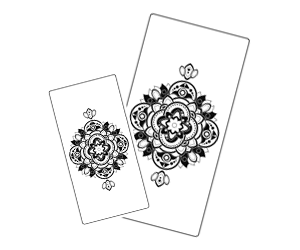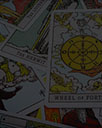The Devil tarot card meaning
-
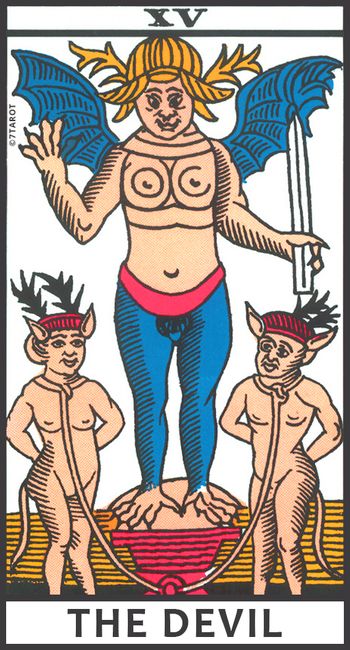
-
UPRIGHT
vitality, ardor, pleasure, instinct, glory,
REVERSED
addiction, manipulation, temptation, excess, infidelity,
In a Judeo-Christian culture such as ours, it is hardly surprising that the Devil's arcana arouses ambivalent reactions among the cartomancy adepts. The 15th arcana in the Tarot is particularly feared by some, but others will readily put forward the card's intrinsic qualities. As Temperance teaches us, the truth is probably somewhere in the middle of the two positions.
The Devil features a main character standing on a pedestal. Horned, clawed and winged, it doesn't look really human, but nor does it look like an animal. The Devil's sex is also ambivalent as the character has both women's breasts and male genitalia.
The blue wings testify to character's celestial origin - the Devil being a fallen angel - but also convey ideas of invisibility, obliviousness and passivity.
The eyes look straight forward towards the seeker, emanating power and determination. Its right hand is raised, almost beckoning you to join it. Its influence also manifests itself in the hold it exerts on the two characters chained to the base of its pedestal, two beings reduced to the condition of slave and beast.

It is equally bad to sin through commission as through omission.
Influence
-

short-term
In the short term, the Devil invites you to respond to the impulses you feel and then it's up to you whether you give in to the temptation to be impulsive or fight against it. While change can sometimes be constructive, it can also be destructive when it follows irresponsible behavior.
-

long-term
In the long run, the Devil encourages you to think about the meaning you want to give to your life and to the person you want to become. Whereas Justice advocates the ideal of an upright and rigorous life, the Devil defends a more Dionysian vision of existence, in which it is perfectly normal to yield to desires and impulses. The latter can be extremely liberating, but it is also full of risks.
Would you like to make a draw of the Tarot cards?
The Devil Tarot Card Meaning
The Devil upright

As is always the case in a tarot draw, the meaning of the arcana will depend to a large extent on the other cards that surround it. So use the following information carefully. Often, the Devil symbolizes the strengths and weaknesses hidden deep inside people. These well-kept secrets can, for example, relate to impulses that you try to avoid giving in to, but also to well-established habits that are difficult to change. Like Yin and Yang, God and the Devil maintain a close relationship. If one reigns over the light, the other governs the night and its mysteries. In the end, one could not exist without the other.
If the Devil causes fear, it is because it refers to the elements of themselves that people have difficulty controlling. However, keep in mind that this character is not necessarily dangerous, it simply encourages you to give in to your compulsions. In this way you could even consider that it can offer you a certain form of liberation, because it leads you to question the codes and values that govern your life. It can be understood as the very symbol of desire, with its thrilling and unstable results. When you draw the Devil, the real danger is not being able to resist your primary impulses, which can lead to particularly destructive consequences. Although risk taking is sometimes synonymous with positive change, giving in to impulsiveness can also lead to a stream of spontaneous acts that is difficult to control. It will be a question of learning to channel.
The Devil reversed

Contrary to appearances, the Devil drawn reversed is much easier to grasp than it is when drawn upright. In this form, the card loses some of its potential for destruction, as it will only influence the psychic, relational and sexual domains. Less significantly, it often leads the seeker to become aware of their dependencies on certain people or situations. In this respect, it constitutes an undeniable asset for those who wish to get a better understanding of the workings of human psychology and to get rid of harmful habits.
In this form, this knowledge can create a need for change in the seeker, a change in behavior that will gradually contribute to their well-being. Once on the right path, you should be very wary of violent or sudden impulses, which are true sources of error. Your actions need to be consistent and serene to produce happiness!
